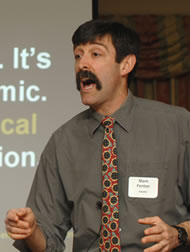
Mark Fenton and Active Transportation
But I don’t want to bike in the winter.
Honestly, we don’t blame you; biking during a snow storm isn’t fun. For cold and snowy winter months, if walking isn’t possible, the Pullman Transportation buses are an option. You can visit their website here to see schedule times, routes, and other important information. The best part of the bus routes is that they are free for students with their cougar card.
It’s Summer! The sun is out and I want to get outside and explore!
If you’re done with school for the summer and ready to stretch those legs, there are plenty of places to hike or bike in or around Pullman.
With summer comes good local food options!
You can use the local trails to get to Pullman’s Wednesday Farmer’s Market or hit the trail for a little bit longer and bike to Moscow’s Farmer’s Market on Saturdays, or simply dine out at a local restaurant.
Walk or bike to Eggert Family Organic Farm right here on campus for organic local produce.
How Does all this Relate to Active Transportation?
WSU strives to increase the health, awareness, and education of all students. From Summer barbecues to your daily transportation to classes or work, WSU wants students, faculty, and staff to be able to live a healthy life. WSU is taking steps to ensure that this is possible. Now, more than ever, the health and safety of the staff, students, and faculty is increasingly important. Just look at the the WSU Bike and Walk page and the new Coug Bike program.
